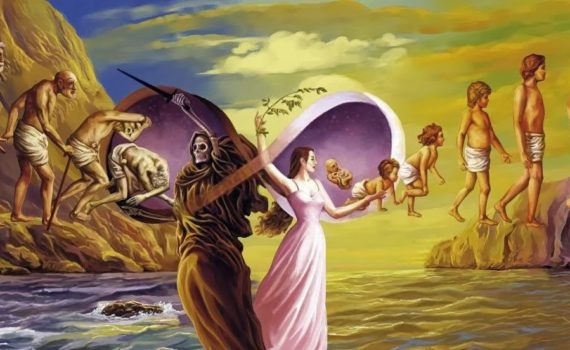Understanding about Past Lives and Reincarnation
Category : Past Life Therapy
Why does belief in past lives and reincarnation make sense? This is a question that I’ve personally considered all throughout my practice as a hypnotherapist. It is difficult to prove any theory of the afterlife of course, but reincarnation is indicated as a very plausible theory, even without the experience that many people have with past life regression. The purpose of this article is not to come up with the definitive answer, but rather to spark some thought and consideration about this possibility.
One Birth Theory vs. Multiple Birth Theory
Reincarnation and karma explains the inequities found among individuals and groups.
In the religions that propose that people have one life, there is really no logical explanation as to why there is so much disparity between the lives of separate individuals. The question that perplexes many of us is simply this, why would the creator god decide that someone would have all the advantages of a fully endowed life (enough of the necessities of life and to be born being surrounded by the circumstances that would allow for the correct spiritual view) while others are not so fortunate? And, why would the creator god then decide that those who “do not comply” with the dogmas of that religion be damned to eternal punishment? One would have to decide that the creator god is quite capricious rather than the all knowing all loving being.
When you allow for the laws of cause and effect, believing that people experience what they caused others to experience sometime in the future, the inequities of life begin to make more sense. It’s not an uncommon view that when someone performs an action, its effects are definite, so it doesn’t take a great leap of faith that when you think and/or do something, that a potentiality is planted in your mind. Under the right circumstances, that potentiality can ripen into an effect. Thus positive causes result in positive effects, and negative causes result in negative effects. If you were unkind in a past life, unkindness (under the right circumstances) can ripen and be present in a life. If you deprived people of necessities or their life, then those effects, under the right circumstances, can also ripen in the future.

No afterlife point of view vs. multiple birth theory
To believe that there is no afterlife what-so-ever, you would have to believe that our consciousness is centered in the body and that all minds are gross minds. Simply put, when the body dies, the mind dies and that’s it. It is a materialistic point of view, meaning that your consciousness is based on your body.
We do know that all minds are not gross minds (dream minds tell us this), and we even know that the gross mind is not a solid entity. If the mind existed from its own side, it would never change. Our mind is dependent on many causes and is ever changing. We also know that all of our existence, including the existence of our mind, has always been a potential effect since the beginning of time, or it would not exist today. This is the same for our body and this current make-up of who we are is an effect from potentials begun many eons ago.
So, if this mind that we call “me” has been a potential, when we die, why wouldn’t it be a potential again? And, since it has already been a realized potential, what stops it from continuing on? Why then would our mind stop at death? There is no proof that anyone can point to that clearly demonstrates that the mind, our sense of self or our “I” is dependent on the body, but with the above reasoning, we can say that our body is rather dependent on the potentials and minds that preceded it.

